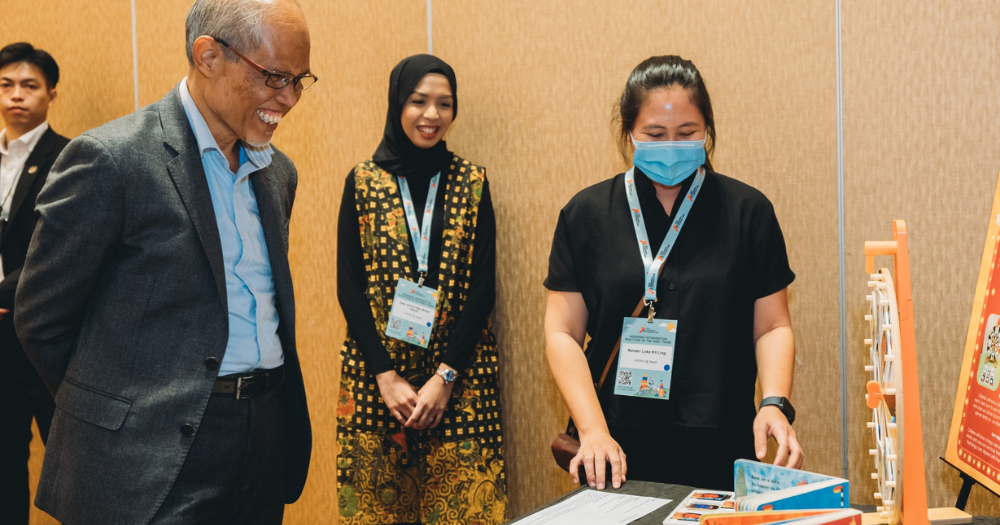Early intervention (EI) educators will see an approximate three to 16 per cent increase in their annual package over the next three years. The increment can come in the form of monthly salary increases, performance bonuses, and other variable payments.
EI educators work with children who have disabilities, developmental delays, or both.
The announcement was made by the Minister for Social and Family Development Masagos Zulkifli at the Early Intervention Conference on Apr. 26, among other interventions aimed to better support EI educators and professionals.
"As a society, we want to support families, including families with children with developmental needs," Masagos said.
Pay raise for early intervention educators
Masagos said to ensure that EI professionals are adequately compensated for their work and efforts, a salary benchmark targets has been set for Social Service Agency (SSA) providers in tandem with the 2024 Social Service Sector Skills and Salary Guidelines that NCSS has published.
"As EI educators attain more skills and competencies and their job responsibilities expand, their salaries should also grow. SSAs will be adjusting to meet these salary targets within the next three years," Masagos continued.
"With these latest revisions, an EI educator today will see an increase of around 3% to 16% per year in their annual package over the next 3 years," Masagos said, adding that it will be in the form of monthly salary increases, performance bonuses and other variable payments.
Another 1,500 EI places to be added in 2024
Masagos said the government has made good progress in increasing access and affordability of early intervention services over the years.
In 2023, Early Childhood Development Agency (ECDA) worked with both Social Service Agencies and private operators to add 1,200 government-funded EI places, which included the opening of two new Early Intervention Programme for Infants & Children (EIPIC) centres.
By opening three new EIPIC centres and expanding the capacity of existing EIPIC centres, parents in Singapore can expect another 1,500 places made available in 2024.
This means by the end of 2024, Singapore will have a total of 7,200 EI places.
Masagos added that with these efforts, the government is on track to meeting its goal of supporting 80 per cent of the children requiring medium-to-high levels of EI support through government-funded programmes by 2027, allowing more children with developmental needs to be able to receive timely support.
The EI professionals will also be supported in their professional and career development.
Masagos also added they had refreshed the Skills Framework for Early Childhood (EC) to include Early Intervention and Learning Support educators in 2021. The EC Continuing Professional Development Roadmap was also expanded to support EI educators in charting out their training pathways and supporting their career development.
Top image via Masagos Zulkifli /Facebook

If you like what you read, follow us on Facebook, Instagram, Twitter and Telegram to get the latest updates.



